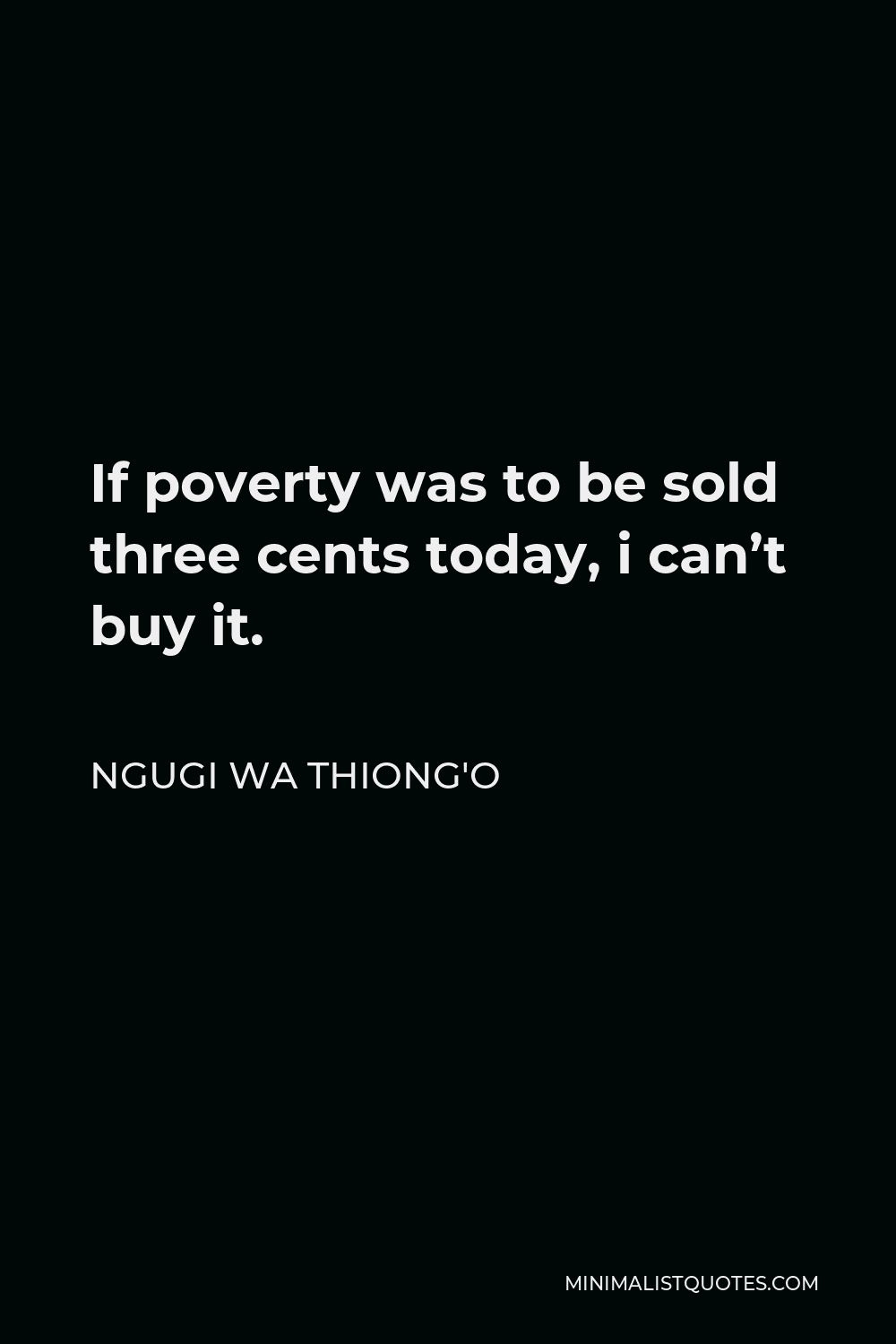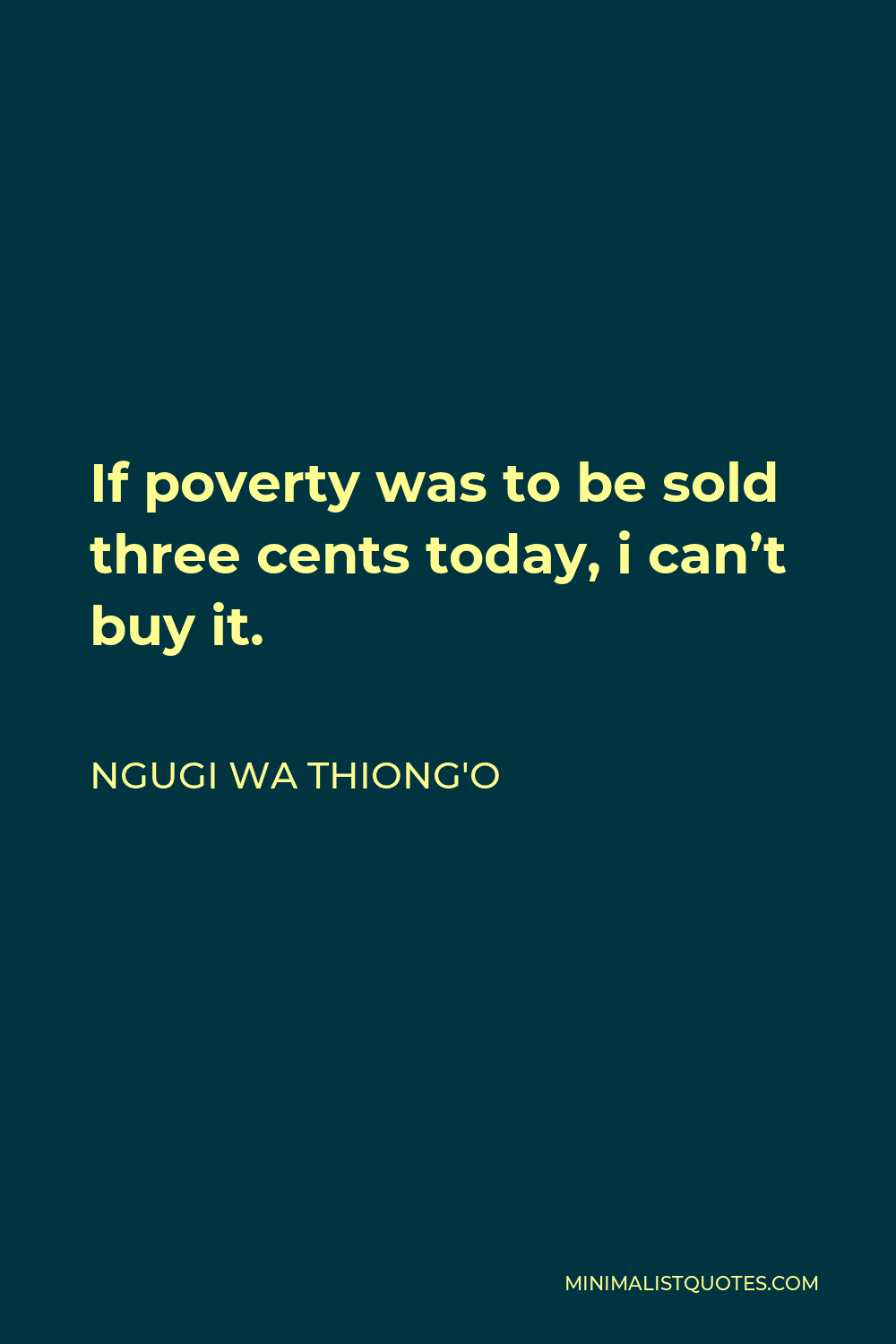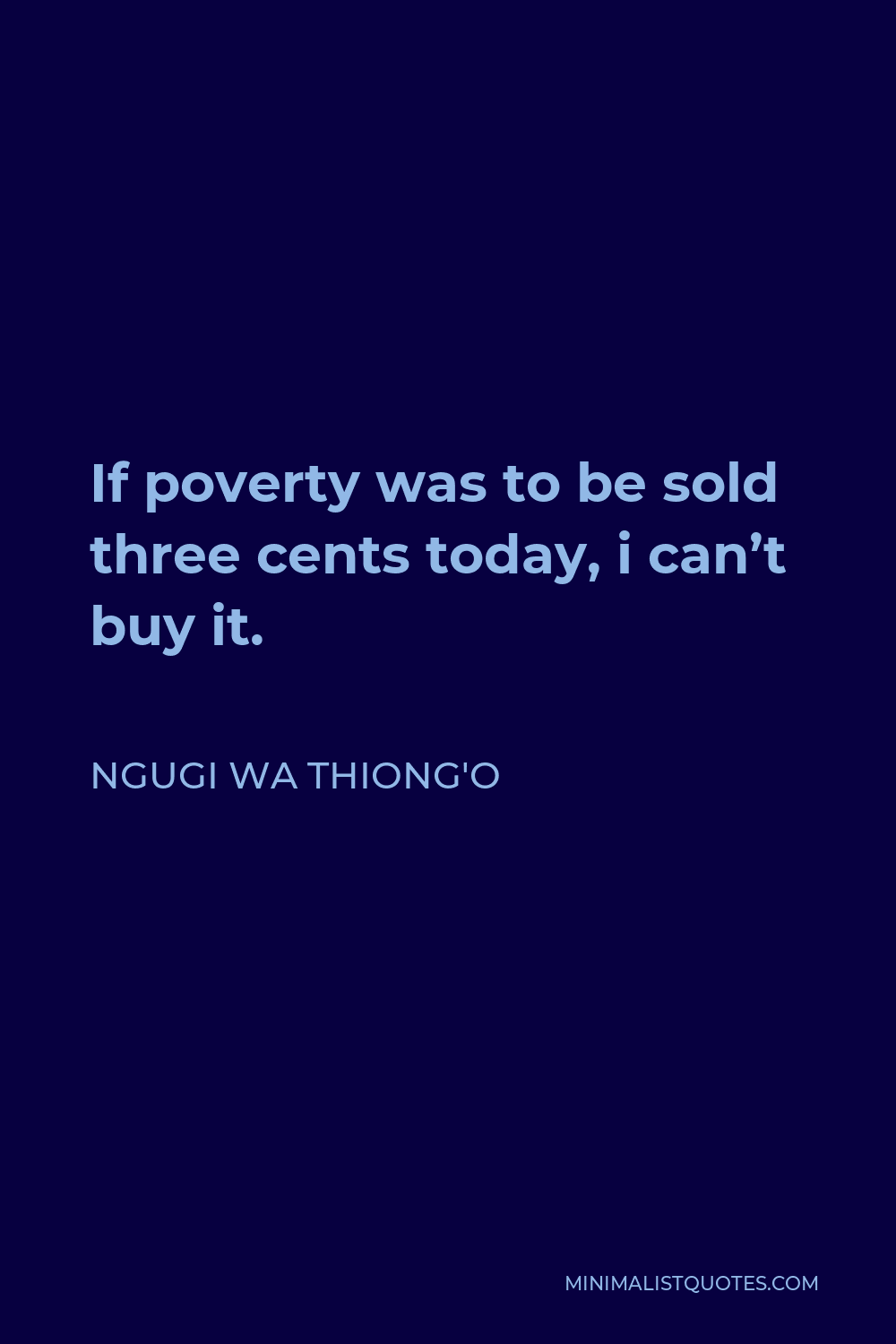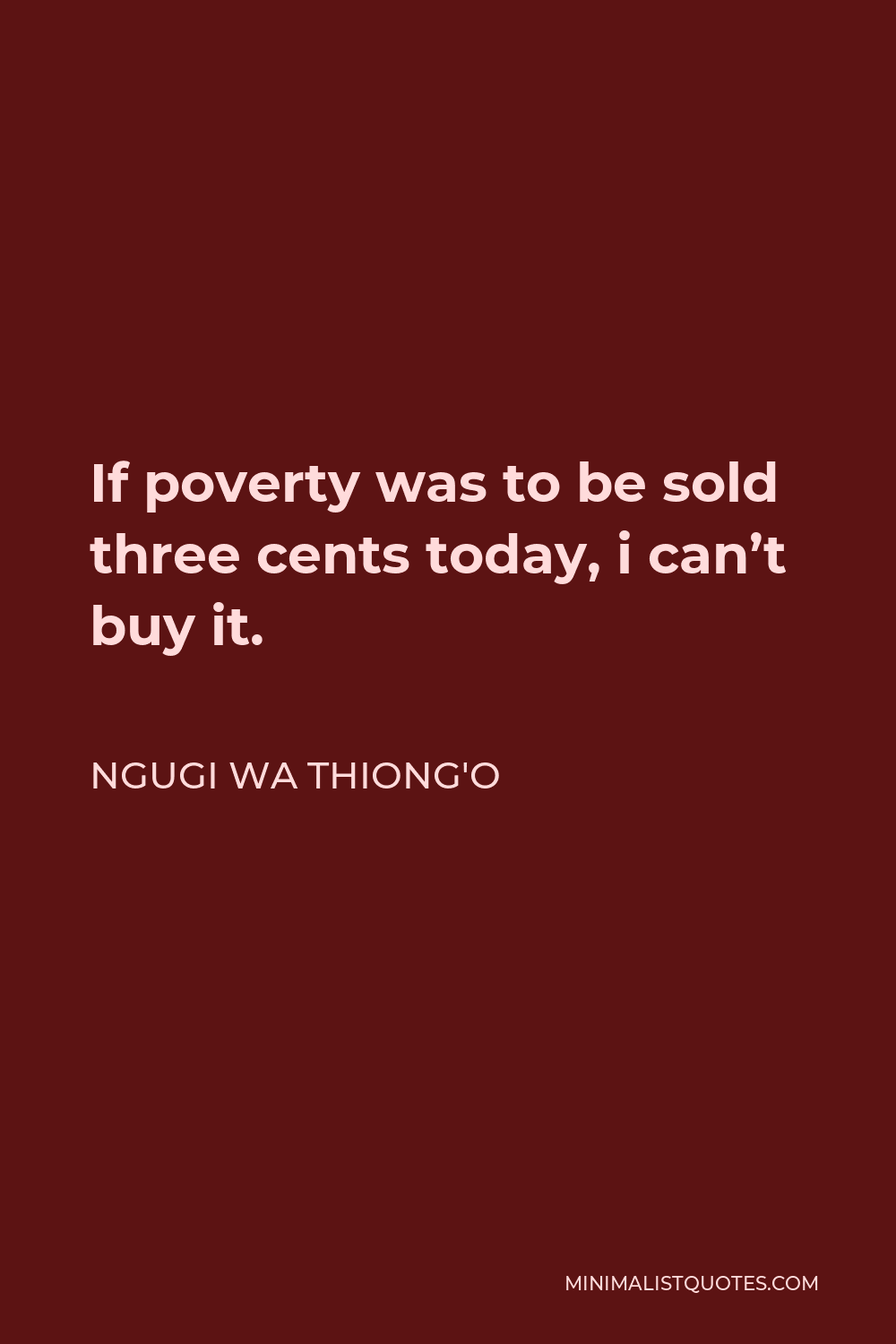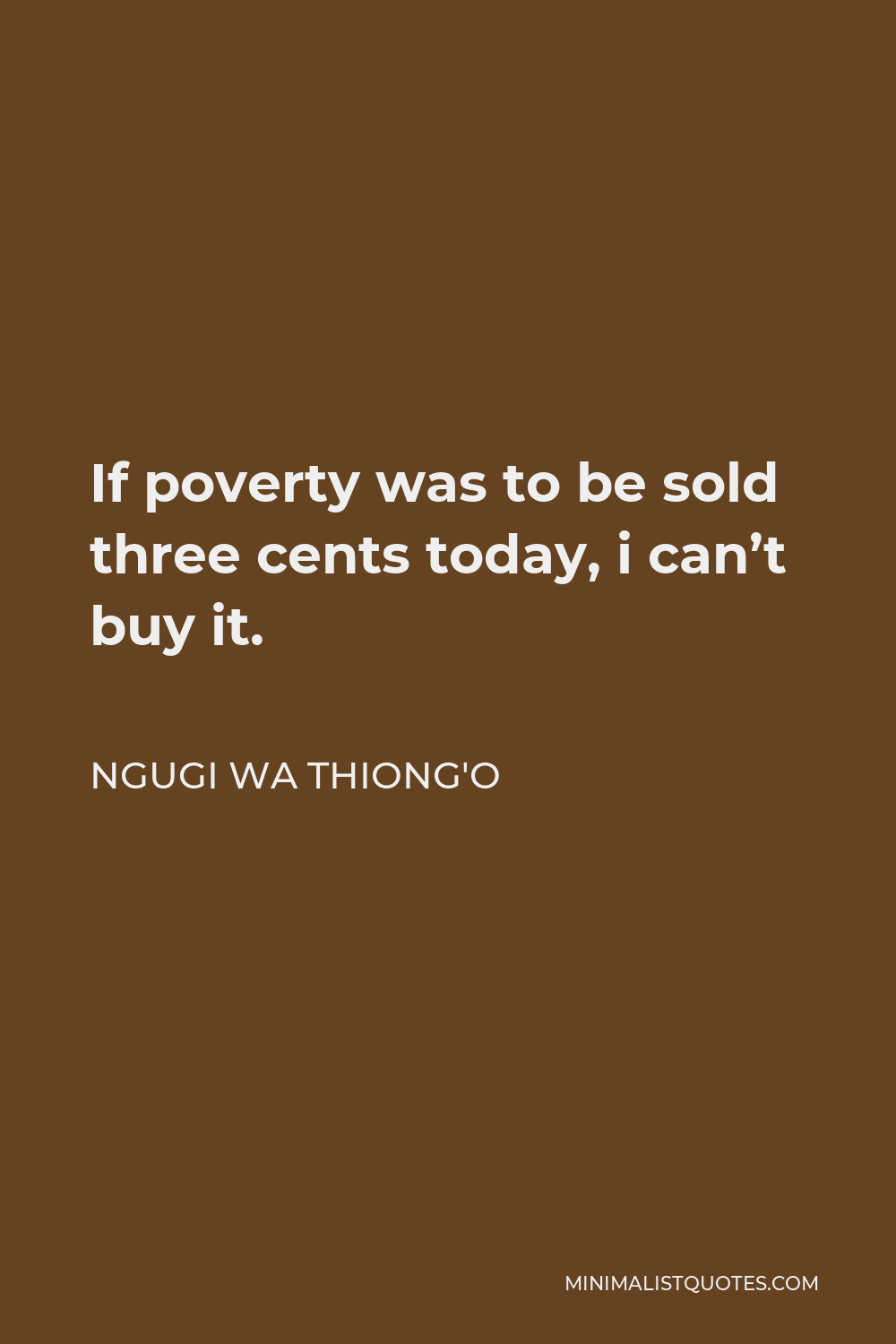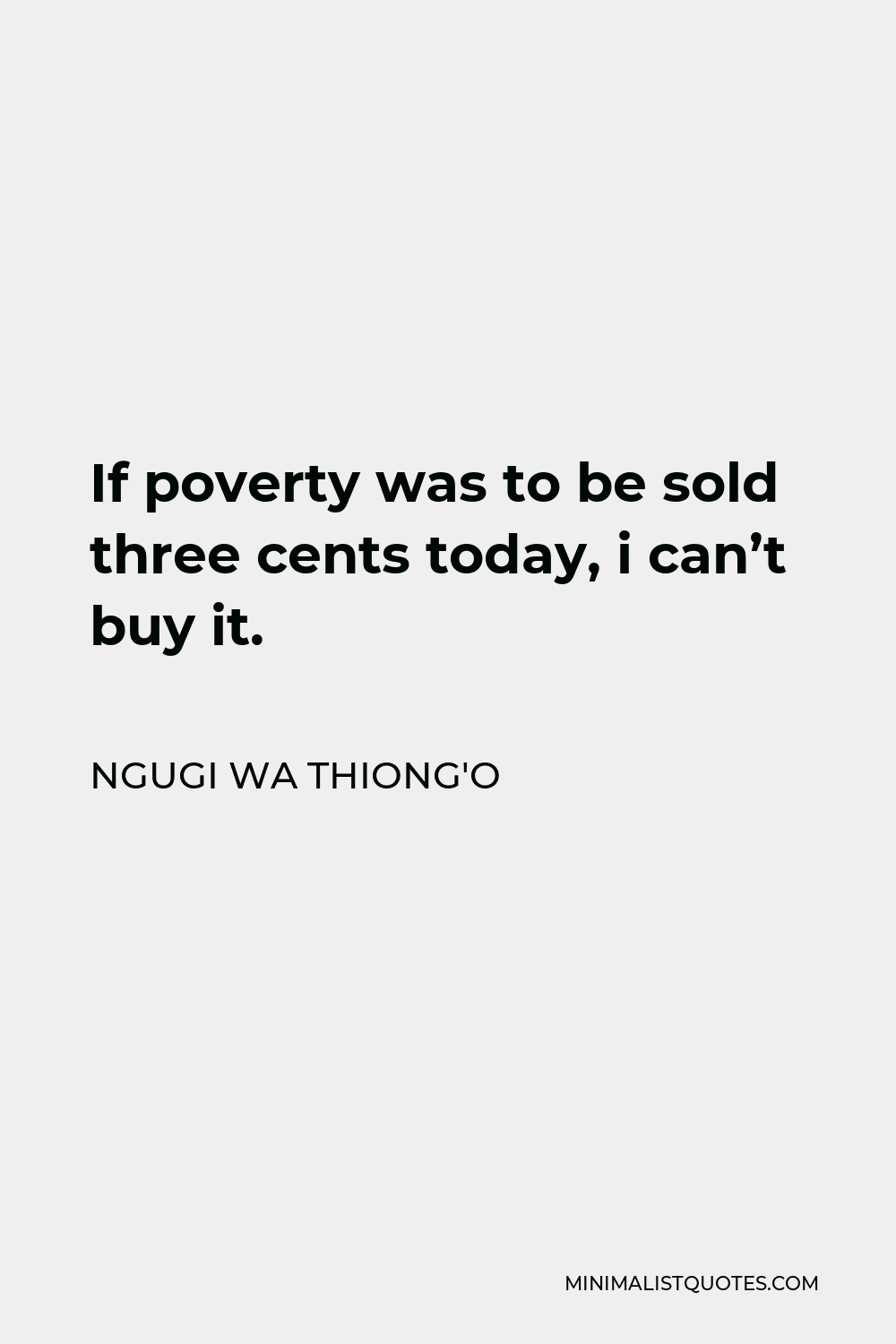Through the act of translation we break out of linguistic confinement and reach many other communities.
NGUGI WA THIONG'OIf poverty was to be sold three cents today, i can’t buy it.
More Ngugi wa Thiong'o Quotes
-





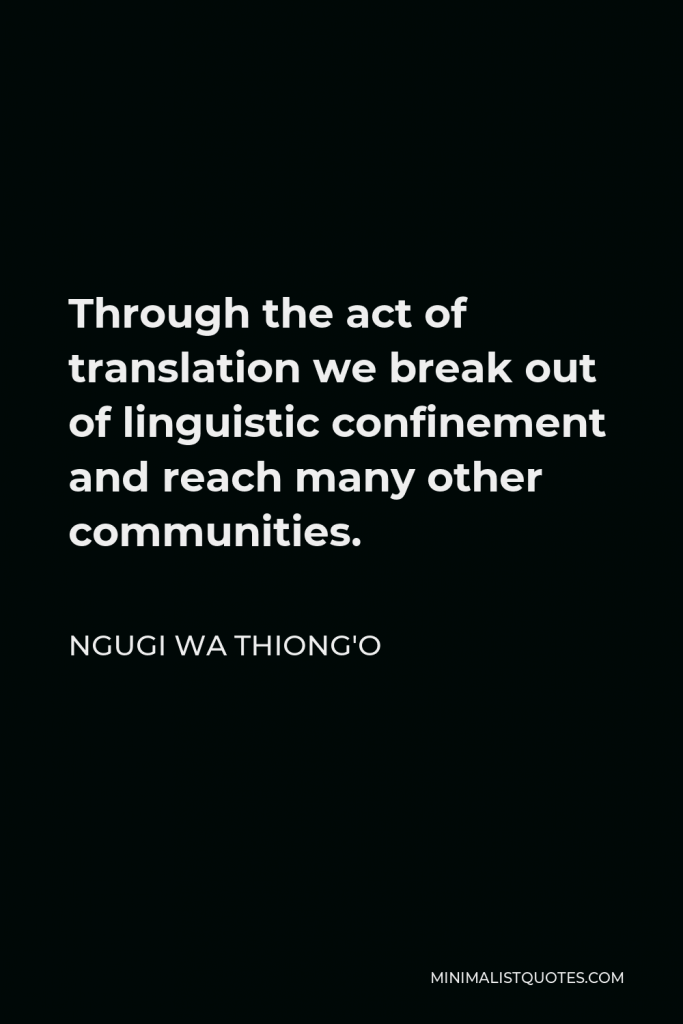

-





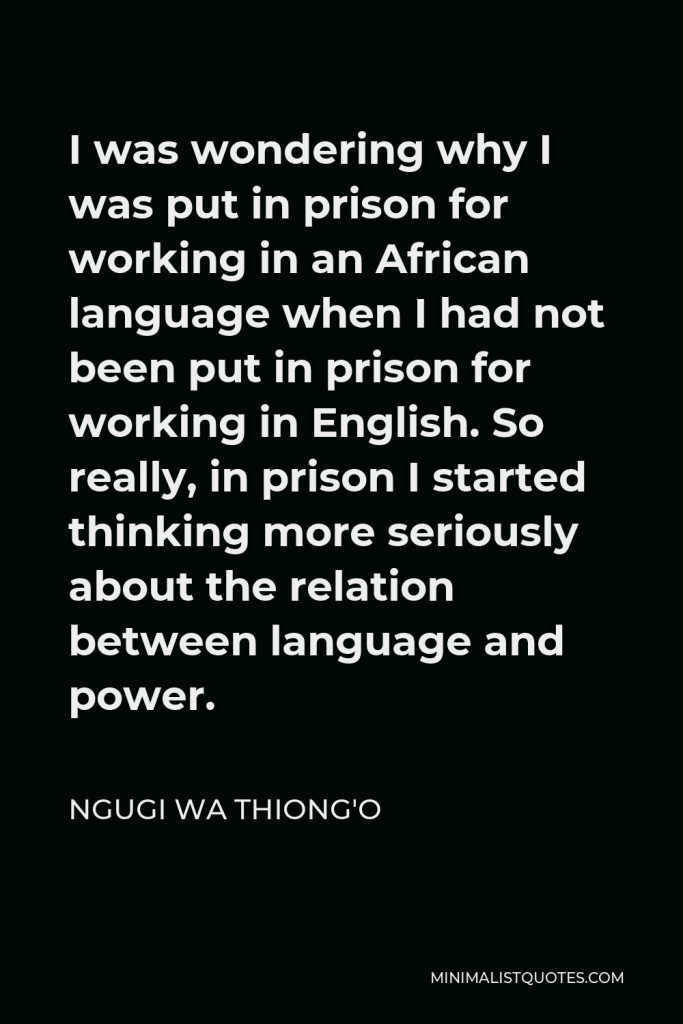

I was wondering why I was put in prison for working in an African language when I had not been put in prison for working in English. So really, in prison I started thinking more seriously about the relation between language and power.
NGUGI WA THIONG'O -





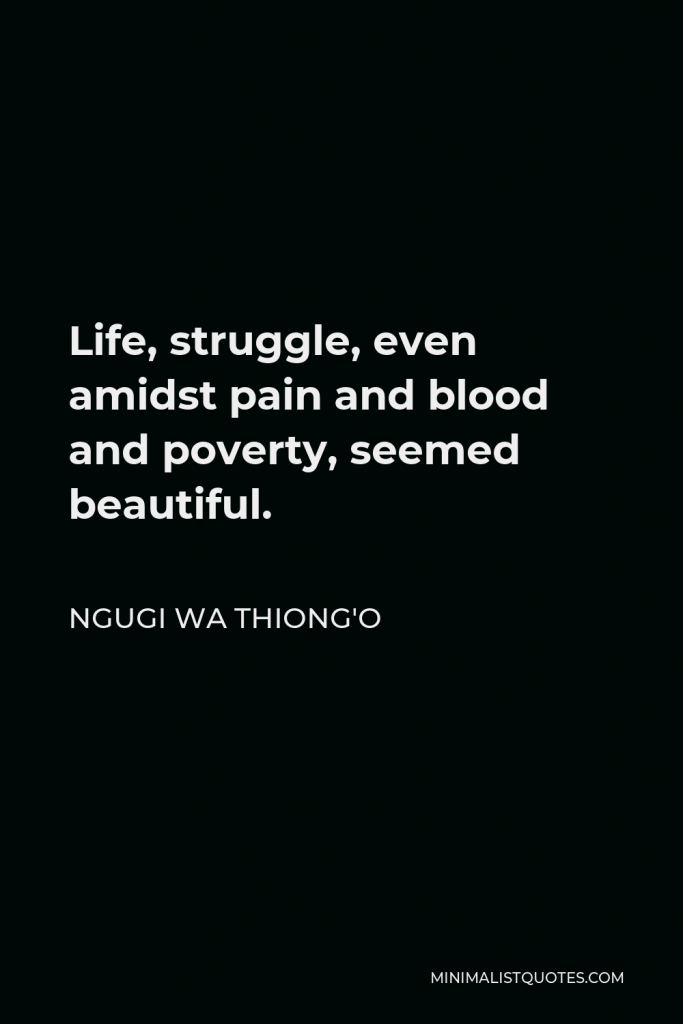

Life, struggle, even amidst pain and blood and poverty, seemed beautiful.
NGUGI WA THIONG'O -





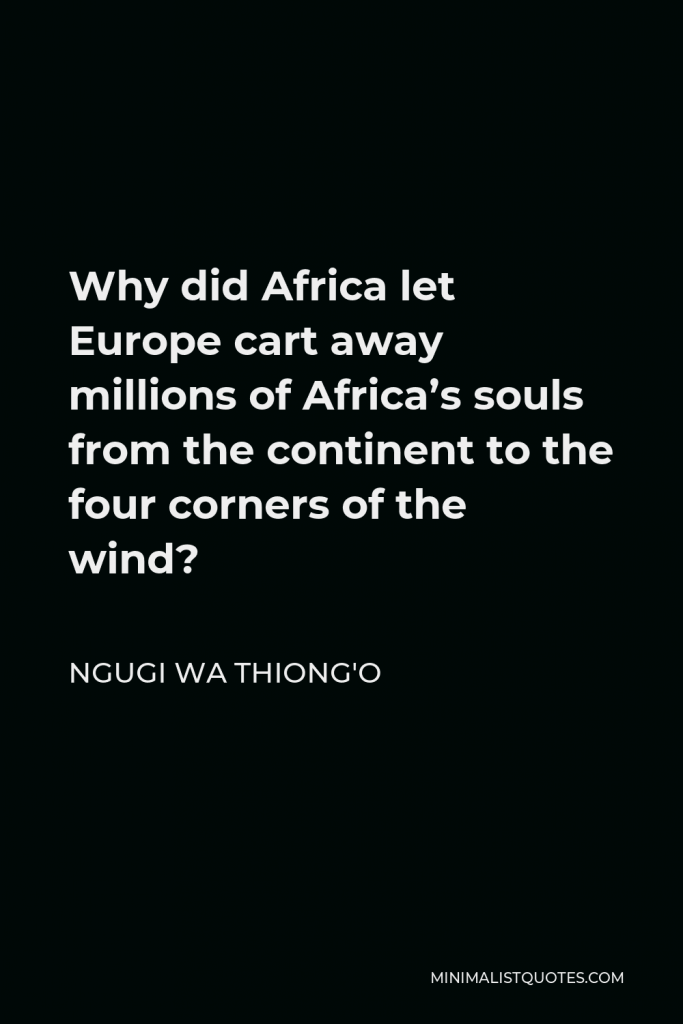

Why did Africa let Europe cart away millions of Africa’s souls from the continent to the four corners of the wind?
NGUGI WA THIONG'O -





![Ngugi wa Thiong'o Quote - Those who strive to build a protective wall around it, and those who wish to pull it down; those who seek to mould it and those committed to breaking it up; those who aim to open our eyes, to make us see the light and look to tomorrow […] and those who wish to lull us into closing our eyes](https://minimalistquotes.com/wp-content/uploads/2022/09/those-who-strive-to-build-a-protective-wall-around-683x1024.jpg)

Those who strive to build a protective wall around it, and those who wish to pull it down; those who seek to mould it and those committed to breaking it up; those who aim to open our eyes, to make us see the light and look to tomorrow […] and those who wish to lull us into closing our eyes
NGUGI WA THIONG'O -





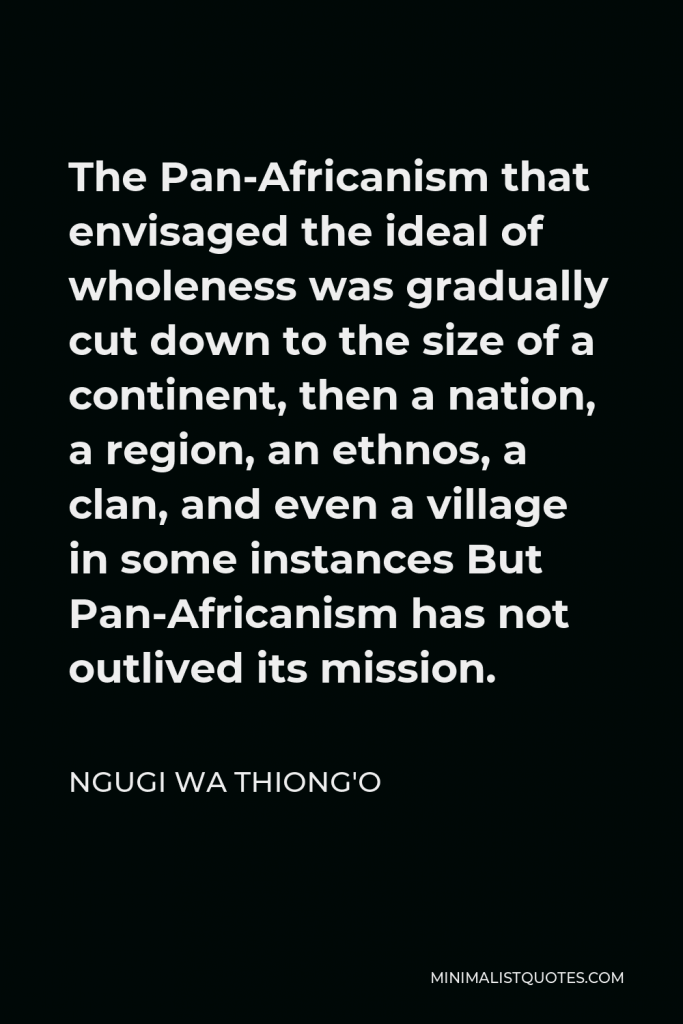

The Pan-Africanism that envisaged the ideal of wholeness was gradually cut down to the size of a continent, then a nation, a region, an ethnos, a clan, and even a village in some instances But Pan-Africanism has not outlived its mission.
NGUGI WA THIONG'O -





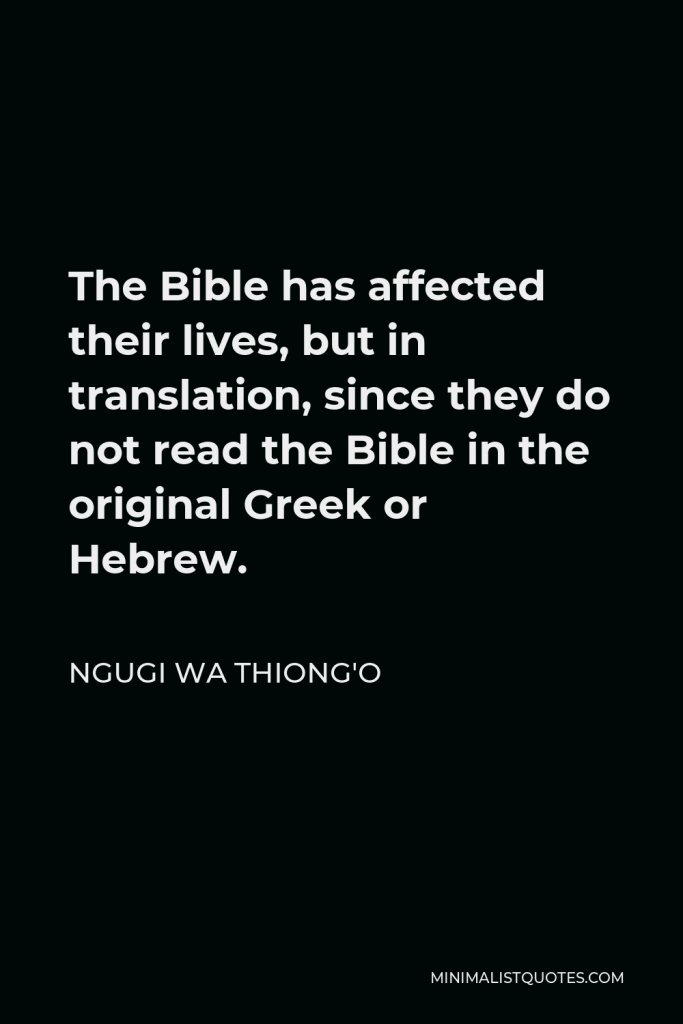

The Bible has affected their lives, but in translation, since they do not read the Bible in the original Greek or Hebrew.
NGUGI WA THIONG'O -





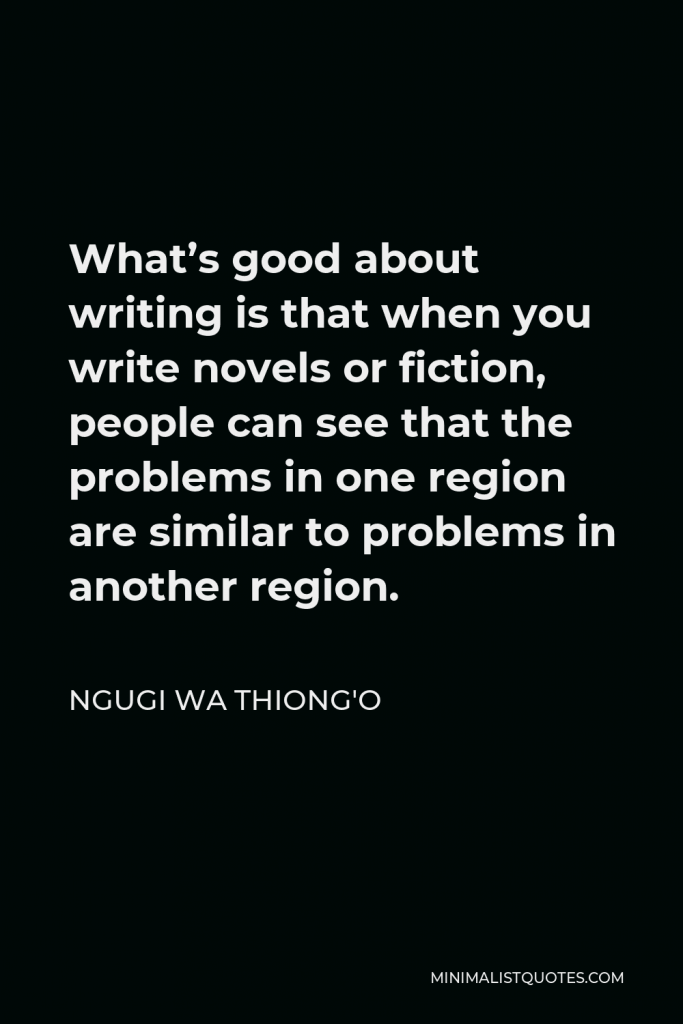

What’s good about writing is that when you write novels or fiction, people can see that the problems in one region are similar to problems in another region.
NGUGI WA THIONG'O -





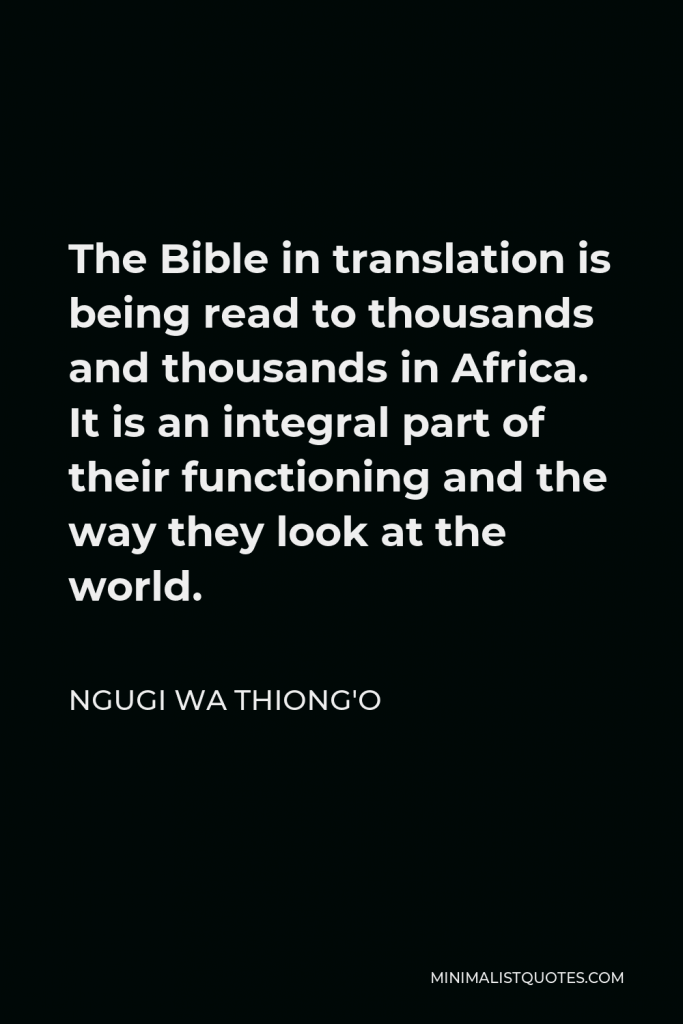

The Bible in translation is being read to thousands and thousands in Africa. It is an integral part of their functioning and the way they look at the world.
NGUGI WA THIONG'O -





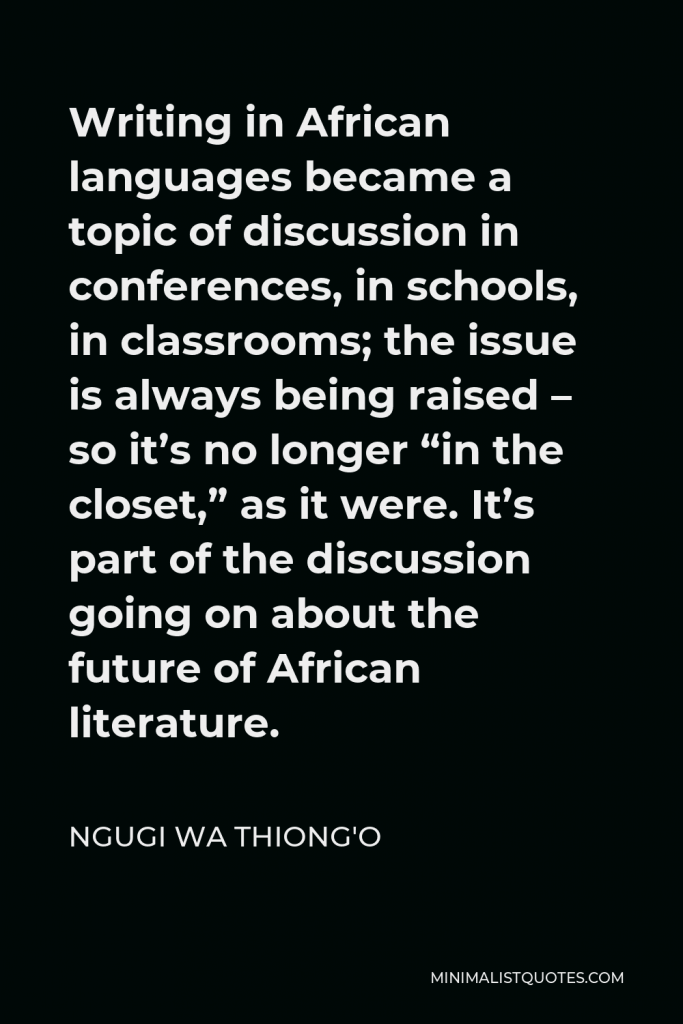

Writing in African languages became a topic of discussion in conferences, in schools, in classrooms; the issue is always being raised – so it’s no longer “in the closet,” as it were. It’s part of the discussion going on about the future of African literature.
NGUGI WA THIONG'O -





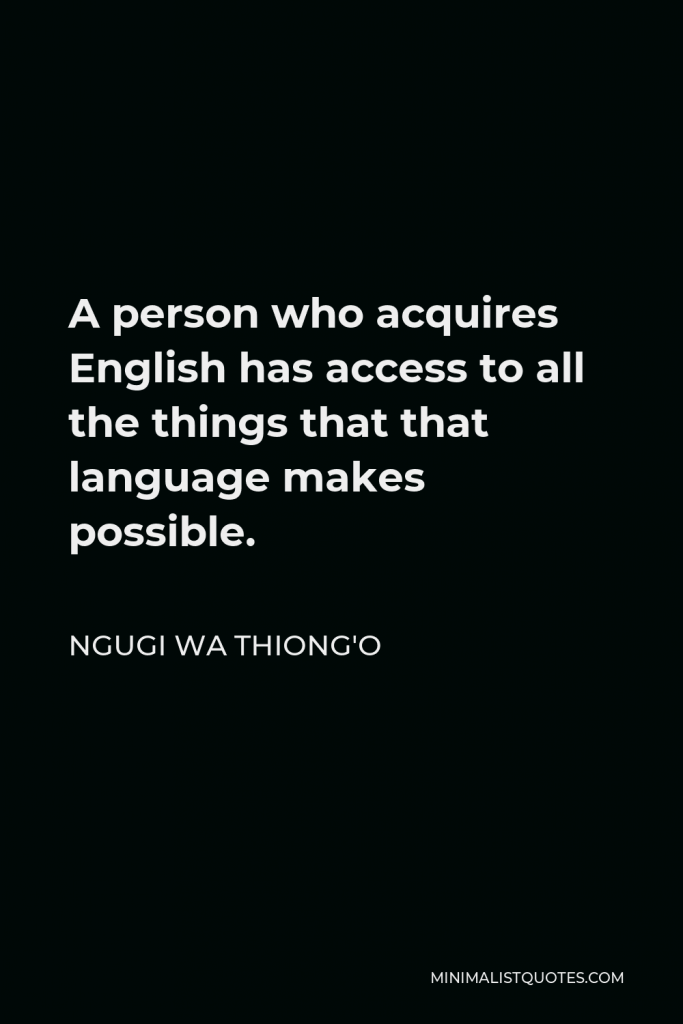

A person who acquires English has access to all the things that that language makes possible.
NGUGI WA THIONG'O -





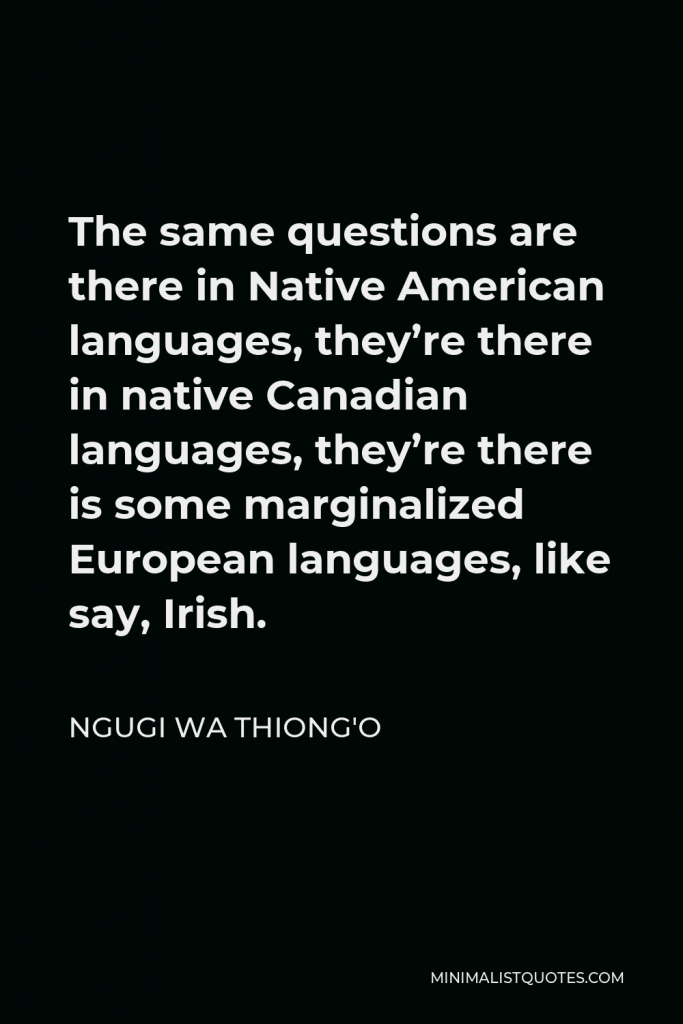

The same questions are there in Native American languages, they’re there in native Canadian languages, they’re there is some marginalized European languages, like say, Irish.
NGUGI WA THIONG'O -





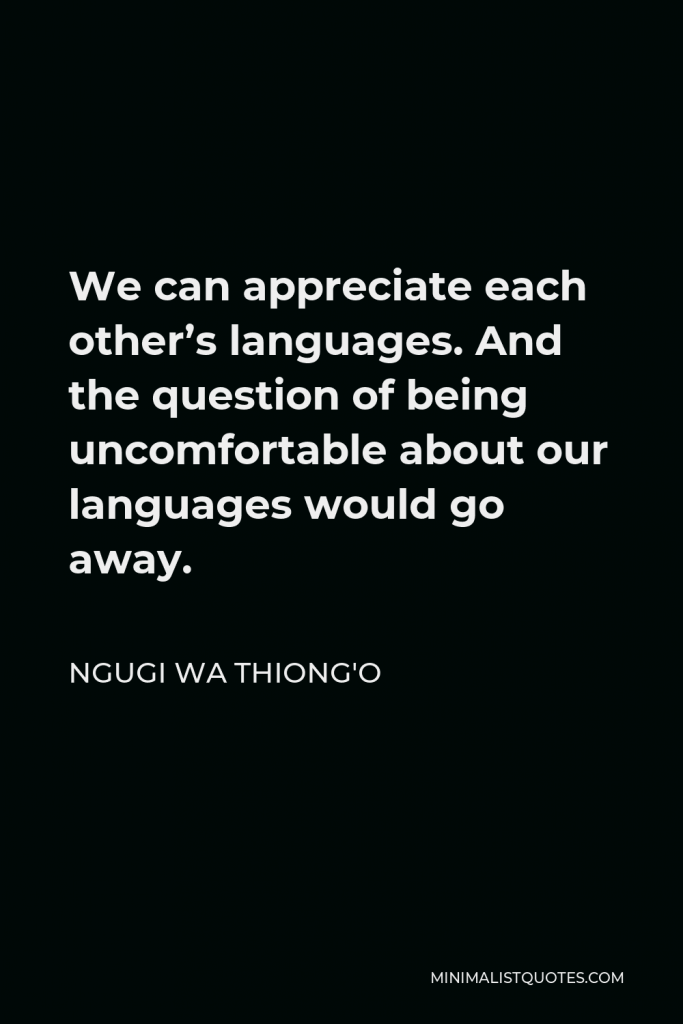

We can appreciate each other’s languages. And the question of being uncomfortable about our languages would go away.
NGUGI WA THIONG'O -





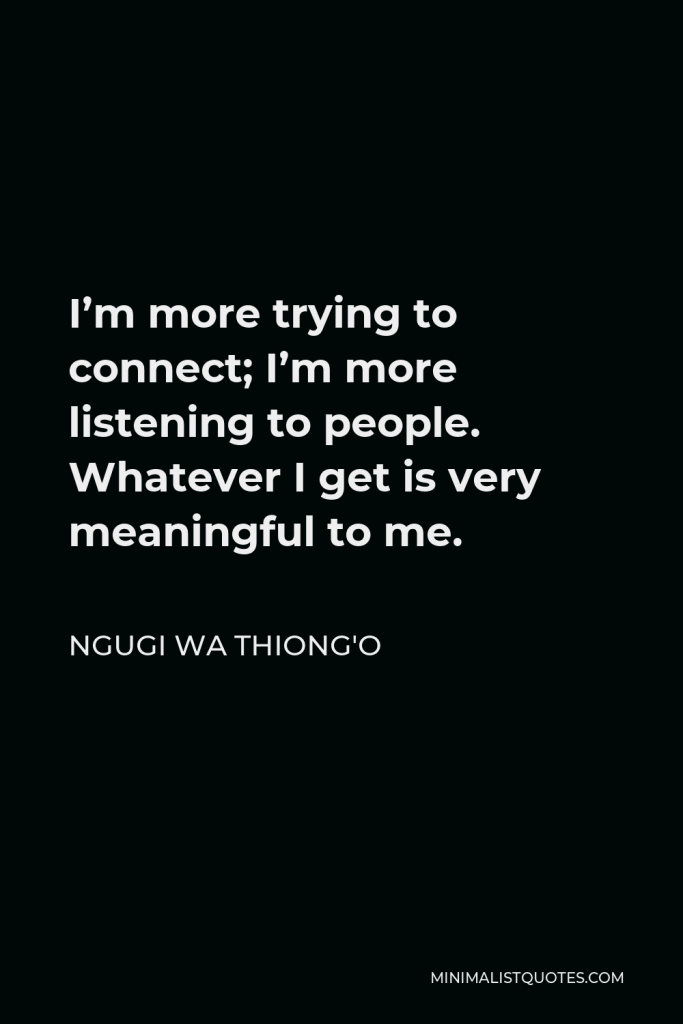

I’m more trying to connect; I’m more listening to people. Whatever I get is very meaningful to me.
NGUGI WA THIONG'O -





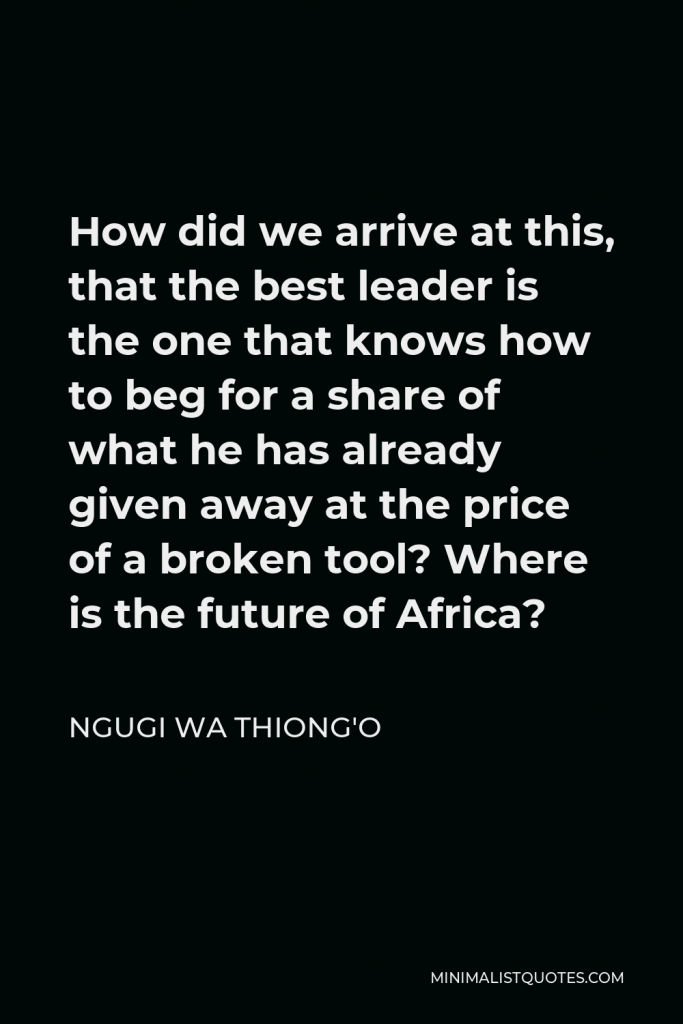

How did we arrive at this, that the best leader is the one that knows how to beg for a share of what he has already given away at the price of a broken tool? Where is the future of Africa?
NGUGI WA THIONG'O -





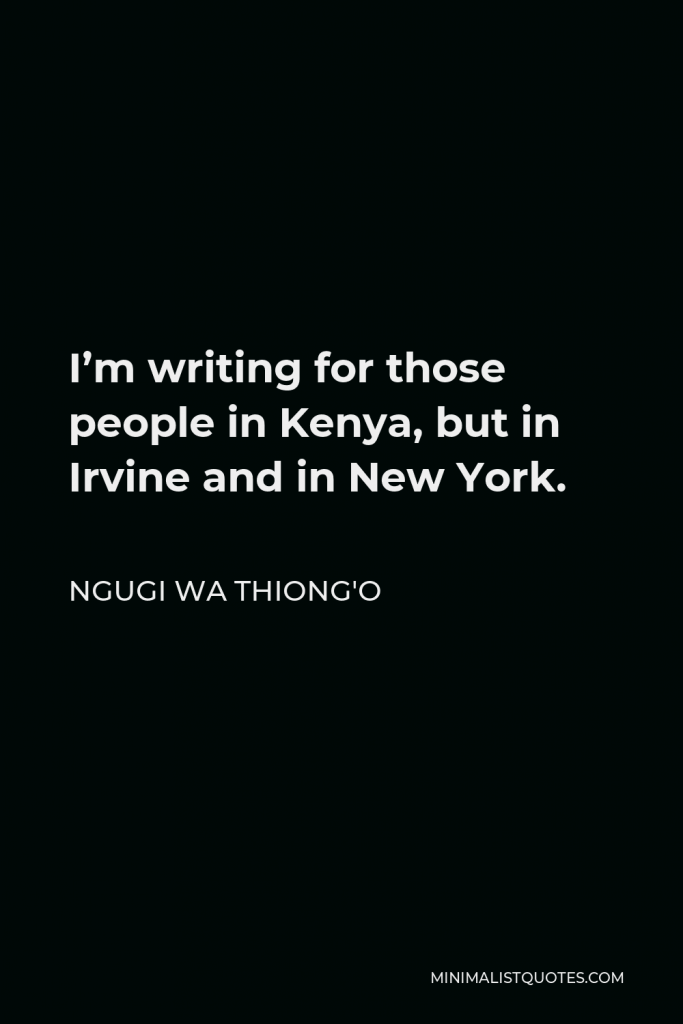

I’m writing for those people in Kenya, but in Irvine and in New York.
NGUGI WA THIONG'O
